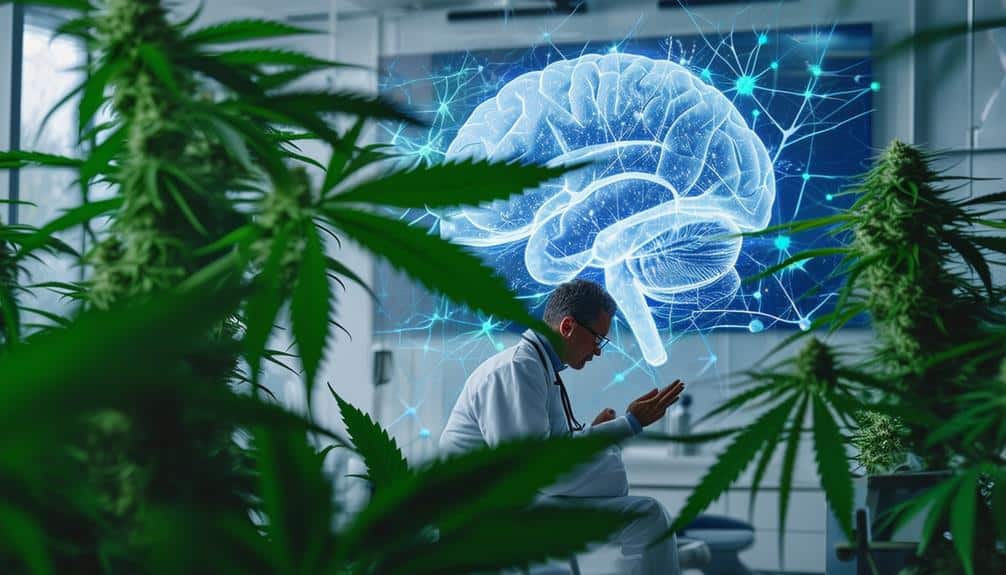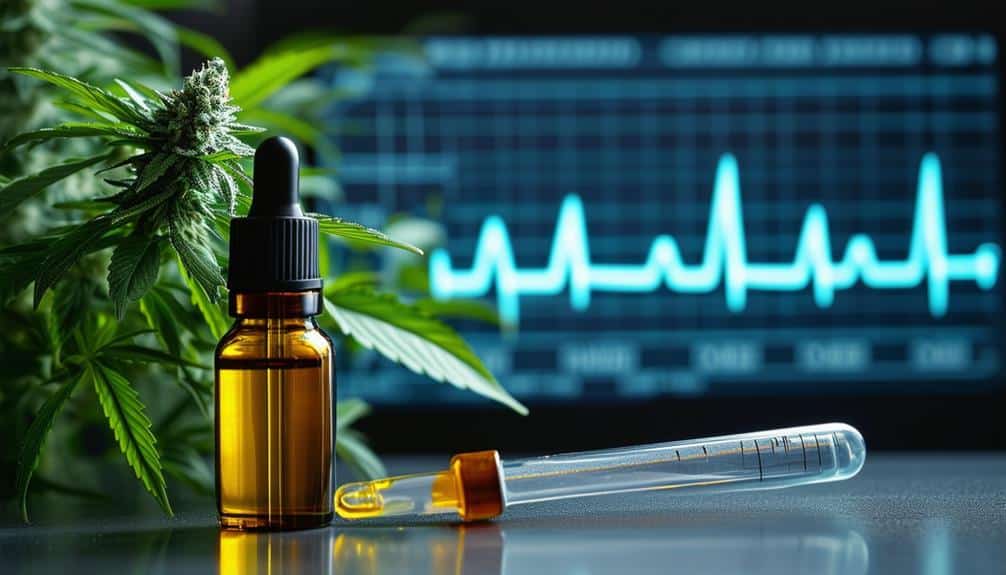Did you know that approximately one-third of epilepsy patients don’t respond to traditional medications? If you’re considering alternative treatments in Delaware, medical marijuana might be a viable option. The state offers a variety of cannabis products, including tinctures, oils, and capsules, tailored to meet your unique needs. With a physician’s recommendation and a clear application process laid out by the Delaware DHSS, you could potentially reduce seizure frequency and improve your quality of life. But how do you navigate the benefits and risks effectively? Let’s explore the possibilities together.
Understanding Epilepsy and Cannabis

Epilepsy, a neurological disorder characterized by recurrent seizures, has shown varying responses to cannabis-based treatments in clinical studies. You might be interested in the potential of cannabis for seizure management given its emerging role in epilepsy care.
Cannabis research has indicated that certain cannabinoids, particularly cannabidiol (CBD), can reduce seizure frequency and severity in some patients. These findings are significant because traditional antiepileptic drugs don’t always work for everyone and they can have debilitating side effects.
Clinical trials have provided evidence that CBD can be effective especially for treatment-resistant epilepsy types like Dravet syndrome and Lennox-Gastaut syndrome. Randomized controlled trials have demonstrated a reduction in seizure frequency by as much as 50% in some patients using CBD. This level of efficacy is promising although it’s worth mentioning that responses vary among individuals.
It’s essential to understand the mechanisms by which cannabinoids interact with the brain’s endocannabinoid system to modulate neuronal activity. This understanding could guide you in making informed decisions about incorporating cannabis into seizure management protocols.
Continued cannabis research and clinical trials are vital to fully elucidate its therapeutic potential and optimize its use in epilepsy care.
Delaware’s Medical Marijuana Laws
Given the promising role of cannabis in epilepsy management, understanding Delaware’s medical marijuana laws is critical for securing legal compliance and patient access. Delaware’s legal requirements mandate that patients must possess a valid medical marijuana card. To qualify, you need a diagnosis from a licensed physician confirming that you have a debilitating medical condition such as epilepsy. The physician must also certify that the benefits of cannabis use outweigh the risks.
Patient qualifications include being a Delaware resident and submitting an application to the Delaware Medical Marijuana Program along with a $50 registration fee. Once approved, the card is valid for one year allowing patients to purchase cannabis from state-licensed dispensaries.
Delaware has several dispensary locations guaranteeing accessibility throughout the state. These dispensaries offer a range of products tailored to different therapeutic needs. To secure product availability, dispensaries maintain stocks of various cannabis forms which are rigorously tested for quality and potency.
Adhering to these regulations not only ensures that patients receive effective treatment but also maintains the integrity of the medical marijuana program. By understanding and following these guidelines, you’re supporting a system designed to provide safe legal access to cannabis for epilepsy management.
Available Cannabis Products

Delaware dispensaries offer a variety of cannabis products, each meticulously crafted to address different therapeutic needs. You’ll find tinctures, oils, capsules, and even topical applications that vary in composition and concentration. This product variety allows for tailored treatment plans accommodating individual patient responses and preferences.
Different dosages are available to optimize treatment effectiveness. For epilepsy, the cannabinoids CBD (cannabidiol) and THC (tetrahydrocannabinol) are often used either in isolation or in combination. Research suggests that CBD, in particular, can greatly reduce seizure frequency. Dosage adjustments are essential as individual tolerance and therapeutic response can vary. Starting with a lower dose and gradually increasing it under medical supervision is a common approach.
Patient experiences highlight the benefits and challenges of using medical marijuana for epilepsy. Many report reduced seizure frequency and improved quality of life. However some patients experience side effects like dizziness or fatigue emphasizing the need for careful dosage management.
Clinical trials and patient data continue to support the positive impact of medical cannabis yet ongoing research is necessary for refining treatment protocols.
How to Obtain Medical Marijuana
Securing medical marijuana for epilepsy involves maneuvering through a regulated process that includes obtaining a medical marijuana card through a certified healthcare provider. This journey starts with understanding the legal requirements and fulfilling the application process meticulously.
First you’ll need a physician recommendation. Consult with a certified healthcare provider who can assess your condition and determine if medical marijuana is a viable treatment option for your epilepsy. The doctor must confirm that you meet the legal requirements set by the state of Delaware.
Once you have the recommendation, follow these steps:
- Complete the Application Process: Fill out the medical marijuana card application provided by the Delaware Department of Health and Social Services (DHSS). Make sure all sections are accurately completed.
- Submit Documentation: Include your doctor’s recommendation and any required identification documents.
- Pay the Application Fee: A non-refundable fee is required. Make sure you have the correct payment method as specified by DHSS.
- Wait for Approval: The DHSS will review your application. Upon approval, you’ll receive your medical marijuana card.
With your card, you can visit state-approved dispensaries to obtain medical marijuana. It’s important to choose a reputable dispensary that aligns with your medical needs and provides quality products.
Benefits and Risks

While medical marijuana presents promising therapeutic benefits for epilepsy, it’s important to weigh these against potential risks and side effects. Clinical studies have shown that cannabinoids particularly CBD can greatly improve seizure control in patients with treatment-resistant epilepsy. However, not all patients respond uniformly.
Potential side effects such as fatigue, diarrhea, changes in appetite or weight are documented. Additionally there’s a risk of more severe reactions like liver enzyme elevations particularly when taken with other antiepileptic drugs.
Dosing guidelines for medical marijuana are still evolving and precise dosing is essential for minimizing adverse effects while maximizing therapeutic outcomes. Starting with a low dose and gradually increasing it as needed is often recommended. This titration approach helps in finding the effective dose with the least side effects.
Potential interactions with other medications are another crucial factor. For instance, CBD can inhibit the liver enzymes CYP2C19 and CYP3A4 which are involved in metabolizing many antiepileptic drugs. This interaction could either reduce or amplify the effects of these drugs leading to suboptimal seizure control or increased side effects.
Always consult healthcare professionals to navigate these complexities effectively.
Conclusion
In Delaware, if you’re living with epilepsy, medical marijuana offers a promising treatment option. By following state regulations and consulting healthcare professionals, you can access various cannabis products to potentially reduce seizure frequency.
Remember it’s vital to adhere to dosing guidelines and stay informed about potential risks and benefits. With the right approach, you might find that medical marijuana helps you seize the day and notably improves your quality of life.
If you’re curious to learn more I warmly invite you to visit Cannabis Docs of Delaware. We’re here to help answer any questions and guide you through the process. Feel free to give us a call at (855) 420-6797. We’d love to assist you on your journey towards better health!
source https://delawarecannabisdocs.com/medical-marijuana-for-epilepsy-delawares-treatment-options/

No comments:
Post a Comment